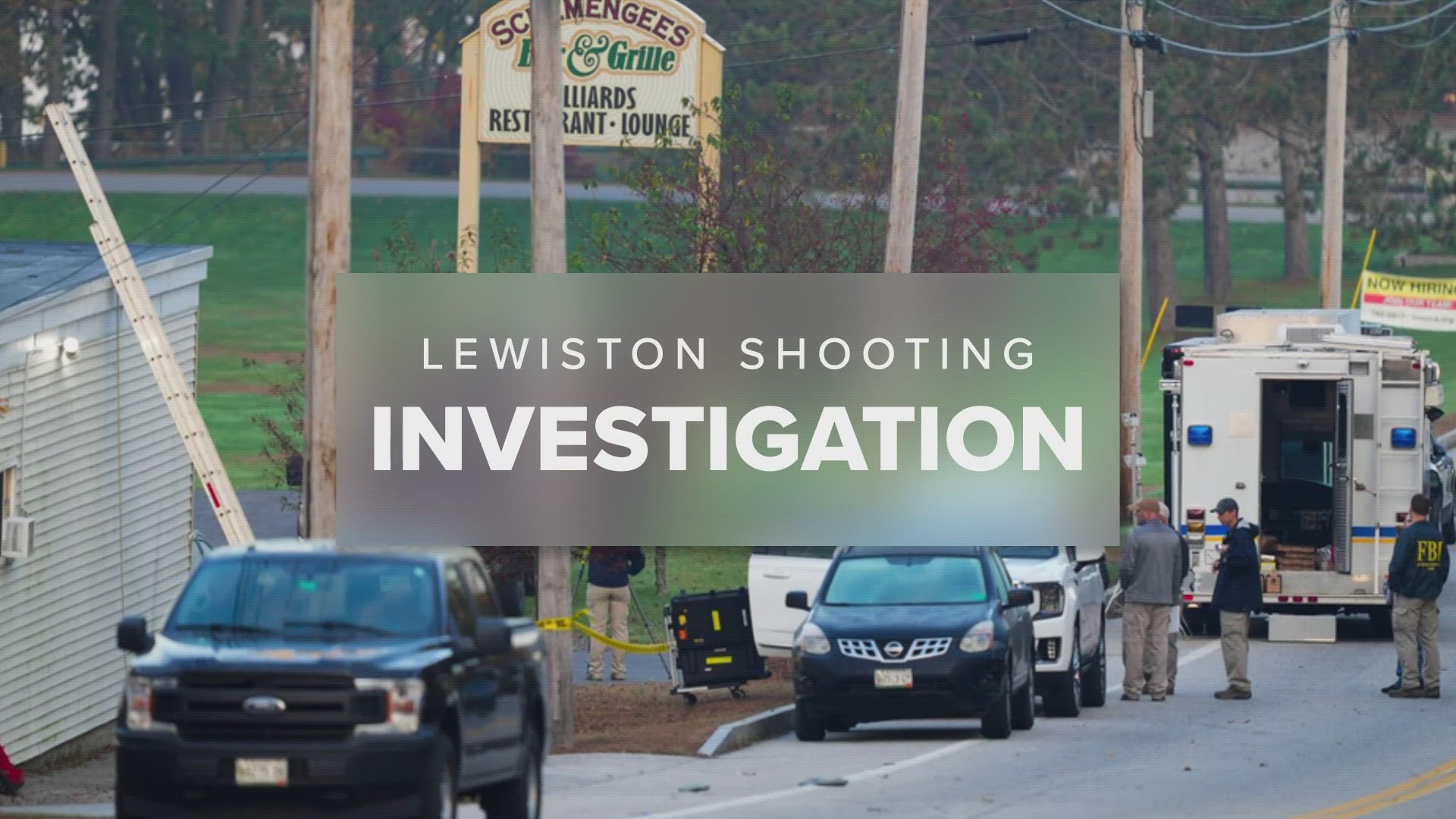AUGUSTA, Maine — Editor's note: The video attached to this story was published Dec. 8.
A spokesperson with the Maine chief medical examiner's office has confirmed Monday that the Lewiston mass shooter's brain is undergoing further testing at Boston University.
Robert Card, 40, died from a self-inflicted gunshot wound on Oct. 27, two days after he killed 18 people and injured more in shootings at Schemengees Bar & Grille and Just-In-Time Recreation, also referred to as Sparetime Recreation.
"The reason further testing is being conducted on Mr. Card's brain is that in an event such as this, people are left with more questions than answers," Lindsey Chasteen, a spokesperson with the medical examiner's office, said Monday in an email to NEWS CENTER Maine. "It is our belief that if we can conduct testing (in-house or outsourced) that may shed light on some of those answers, we have a responsibility to do that."
As first reported Monday morning in The New York Times, the testing could reveal whether Card had a brain injury, such as chronic traumatic encephalopathy, or C.T.E., which the Times alleges he may have suffered while in the Army.
According to Boston University, which has a research center dedicated to its study, C.T.E. is a "progressive degenerative disease of the brain found in people with a history of repetitive head impacts."
Symptoms of C.T.E. can include "memory loss, confusion, impaired judgment, impulse control problems, aggression, depression, anxiety, suicidality, parkinsonism, and eventually progressive dementia," the website states.
C.T.E. can only be diagnosed after death by a postmortem neuropathological analysis.
The Times reported that soldiers told them Card worked for many years at an Army hand grenade training range, "where he was rocked by thousands of brain-jarring explosions."
Maine's Congressional Delegates penned a letter Friday to Lt. Inspector General Donna Martin of the U.S. Department of the Army urging them to conduct an investigation into the steps the Army Reserve took to investigate Card. The letter was issued one day after the delegates met with a survivor and family members of several victims in the shooting.
Friday's letter from Maine's full congressional delegation comes after Collins and King wrote a letter to the inspector general back in November calling for an investigation.
A statewide alert was sent to law enforcement in September after Card reportedly made threats against the U.S. Army Reserve base where he trained, according to the Associated Press.
"Concerned" about his behavior in the last couple of months, Card's family alerted authorities, according to NBC News.
The AP also reported that "a bulletin sent to police shortly after this week’s attack said Card had been committed to a mental health facility for two weeks after 'hearing voices and threats to shoot up' a military base."
On Sept. 15, that deputy received a complaint from the Maine National Guard asking for a welfare check to be made on Robert Card. The Guard noted that Card was making threats to shoot up the Saco National Guard facility.
The deputy went to Card's home but did not locate him there and no car was in the driveway. That deputy filed a missing person's report. In that Sept. 15 report, the deputy flagged "CAUTION OFFICER SAFETY—KNOWN TO BE ARMED AND DANGEROUS" and advised law enforcement to "use extreme caution" when dealing with Card.
On Sept. 16, the deputy returned to Card's home and found a vehicle in the driveway and called for a deputy from Kennebec County, a neighboring jurisdiction, to back him up, and they attempted to contact Card, the incident report said.
The deputy said they could hear Card moving around inside, but he would not come to the door.
"Due to being in a very disadvantageous position we decided to back away," the deputy's report said.
According to that Sept. 15 incident report, that deputy contacted the Army Reserve Center in Saco and was told that Card did not have any of the Reserve Unit's weapons and that they had made arrangements with Card's brother who had "retrieved the personal weapons" from Card.
Capt. Jeremy Reamer, according to the report, told the deputy that Card has previously not answered the door in that manner, and: "After he keeps to himself for a while he will come back out." The deputy wrote in his report that the captain "thought it best to let Card have time to himself for a bit."
In November, the Army sent a press release saying they are working with the Maine Delegation and continue to perform an internal investigation into Card.
The families impacted by the mass shooting made it clear the first step is getting the investigation underway.

